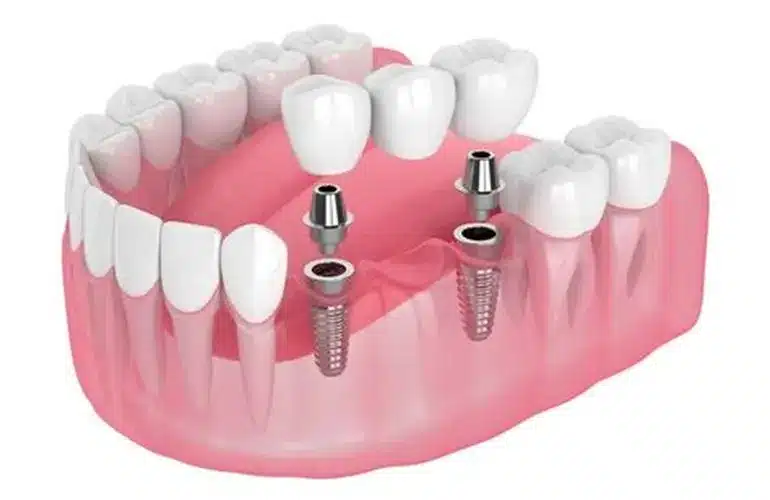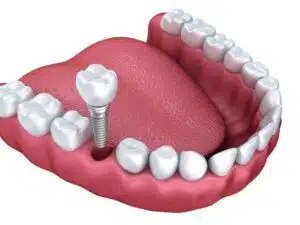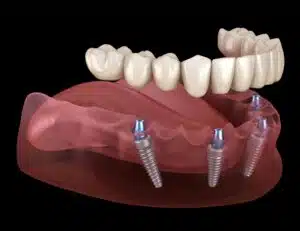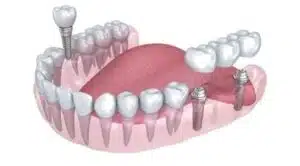
September 16, 2025
Losing teeth can change the way you eat, speak, and even smile with confidence. That’s why dental implants have become one of the most trusted solutions for restoring missing teeth. They don’t just replace what’s lost — they bring back stability, comfort, and a natural look that feels like your own teeth again.
If you’ve ever wondered, what are the 3 types of dental implants, you’re not alone. Many patients are curious about their options and how each type works. Having this knowledge makes it easier to take the next step toward a healthier smile.
At Dentistry at Marysville, we guide patients through every stage of the process, from consultation to final restoration. With proven techniques and a personalized approach, we help you choose the right implant for your needs so you can smile with confidence again.
Understanding Dental Implants Basics
Before diving into the specific types, it helps to know what dental implants procedures are and why so many people choose them. Having this foundation makes it easier to understand which option might fit your needs best.
What Are Dental Implants?
Dental implants are small titanium posts that act as replacement tooth roots. Once placed in the jawbone, they fuse with the bone and provide a stable foundation for crowns, bridges, or dentures. This makes them one of the most dependable ways to restore both the look and function of natural teeth. Many patients say implants feel just like their own teeth, giving them the freedom to eat, speak, and smile with confidence. When people ask about the different types of dental implants, they’re often searching for options that offer strength, comfort, and lasting results.
Why Do Patients Choose Implants?
Compared with dentures or traditional bridges, dental implants provide clear advantages. Dentures may slip or require adhesives, and bridges can put extra stress on neighboring teeth. Implants, however, stay securely in place and also help preserve the surrounding bone. They last much longer than other replacements and only need the same care as natural teeth—regular brushing and flossing. For many people, implants are the most natural-looking and reliable way to replace missing teeth.
Understanding What Are the 3 Types of Dental Implants
Every patient’s smile and oral health needs are unique, which is why implants are not offered as a one-size-fits-all treatment. Instead, dentists select from three main types, each designed for specific situations such as bone strength, jaw structure, and long-term goals. Knowing these differences helps patients feel informed and confident before making a decision.
Let’s break down the 3 types of dental implants most commonly used today.
1. Endosteal Implants — The Standard Choice
Endosteal implants are the most widely used option and are often considered the gold standard for dental restoration. They are small, screw-shaped posts that are surgically placed directly into the jawbone, where they act as artificial roots for replacement teeth. Once the bone heals and fuses with the implant through a process called osseointegration, the foundation becomes strong enough to support a single crown, a bridge, or even full dentures.
These implants are best for patients with healthy jawbone density and gum tissue. Because the implant is anchored firmly in the bone, it provides excellent stability, allowing replacement teeth to function almost like natural ones. For many patients, this means biting into an apple, enjoying a steak, or laughing with friends without worrying about shifting or slipping.
Healing usually takes several months, but the long-term payoff is worth it. With proper care, endosteal implants can last for decades, making them a highly reliable option for tooth replacement. When people search for the 3 types of dental implants you should know, this is often the one they’ll read about first because of its effectiveness and popularity.
2. Subperiosteal Implants — An Alternative for Weak Bone
Not everyone has the bone strength needed for traditional endosteal implants. That’s where subperiosteal implants come in. Instead of being placed directly into the jawbone, these implants use a custom-made metal frame that sits beneath the gum but above the bone. As the gum heals, the frame becomes secured in place, and posts attached to it can hold crowns, bridges, or dentures.
Subperiosteal implants are ideal for patients with insufficient jawbone who may not want or be suitable for bone grafting procedures. They provide a workable alternative when bone density is too low to support endosteal implants. While they don’t integrate with the bone in the same way, they still provide stability and can greatly improve function and comfort compared to removable dentures.
There are pros and cons to consider. The main benefit is avoiding bone graft surgery, which can be costly and time-consuming. However, subperiosteal implants may not last as long as endosteal ones, and they require precise planning and expert care to succeed. For patients asking, which 3 types of dental implants are available? this option offers hope when bone loss limits other treatments.
3. Zygomatic Implants — Rare but Effective
Zygomatic implants are the least common but also the most specialized type. Instead of being anchored in the jawbone, these extra-long implants are placed in the zygomatic bone, also known as the cheekbone. This option is typically reserved for patients with severe bone loss in the upper jaw who cannot support endosteal or subperiosteal implants.
Because of their length and placement, zygomatic implants require advanced surgical skill and are only performed at select dental centers. The procedure is more complex than standard implant placement, but for patients who have been told they don’t qualify for traditional implants, it can be life-changing. By anchoring in the cheekbone, these implants provide a stable foundation for prosthetic teeth, even in cases where bone grafting would be impossible or unsuccessful.
Healing may take longer, and not every patient is a candidate. Still, for those facing advanced bone loss, zygomatic implants can restore both function and appearance. They represent a final option when other treatments are not viable. For people searching for a guide to the 3 types of dental implants, this is the rare but powerful solution that shows just how far modern dentistry has come.
Comparing the Different Types of Dental Implants
Each implant type has unique strengths, and the right choice depends on your jaw health and personal goals. Endosteal implants are the most common and reliable, offering long-term strength for patients with healthy bone. Subperiosteal implants provide a solution for those with weaker bone, avoiding grafting but with a shorter lifespan. Zygomatic implants are the most advanced, designed for severe bone loss cases where other methods won’t work.
When asking, what are the different types of dental implants, it’s important to remember there isn’t one option that’s best for everyone. If you’ve been wondering what are the 3 types of dental implants, the answer is that each serves a unique purpose depending on bone density, overall health, and your dentist’s evaluation. By comparing the three side by side, patients can better understand their options and feel prepared to take the next step toward a confident, lasting smile.
Choosing the Right Implant in Marysville
Deciding which implant is right for you isn’t something patients should do alone. A dentist begins with a thorough oral exam, digital scans, and a full review of your medical and dental history. These steps reveal whether your bone structure is strong enough for standard implants or if other solutions are better suited for your needs.
The evaluation process is just as important as the procedure itself. By reviewing every detail, your dentist ensures the treatment plan is both safe and effective. At Dentistry at Marysville, patients receive personalized recommendations that match their health, lifestyle, and long-term goals.
When asking what are the 3 types of dental implants, the answer often depends on what works best for your smile. A customized approach ensures you receive lasting results and the confidence that comes with a healthy, functional set of teeth.
Final Thoughts — Which Implant Is Right for You?
When it comes to replacing missing teeth, dental implants stand out as one of the most trusted solutions available. Patients today have three main options: endosteal implants, which are the most common and offer strong, lasting support; subperiosteal implants, designed for those with weaker bone who may not want grafting; and zygomatic implants, a rare but effective choice for severe bone loss cases. Each type has unique advantages, but the right one depends on your bone health, personal needs, and your dentist’s expertise.
If you’ve been wondering what are the 3 types of dental implants and which might be right, schedule a consultation. At Dentistry at Marysville, our team evaluates your smile with care and designs a treatment plan tailored to your needs. With expert guidance, you can restore your function, regain confidence, and enjoy a healthy smile that lasts many years.
Get in Touch with Dentistry at Marysville Today
Choosing the right implant is a big decision, but you don’t have to figure it out alone. Our team at Dentistry at Marysville takes the time to listen, evaluate, and design a plan that fits your smile and lifestyle. Whether you need endosteal, subperiosteal, or zygomatic implants, you’ll get expert care and long-lasting results. Ready to take the next step? Schedule your consultation here and let us help restore your confidence today.
New Patient Specials
New patients to Dentistry Marysville are invited to take advantage of one of our first-time visitor specials.
To claim the offer, screenshot or print the coupon and show it at your initial appointment.
$149 New Patient Special Plus $100 Off Your Second Office Visit*
*New patients only. A $369 value. Cannot be combined with other offers or insurance.
10% Off Cash Discount on All Dental Services*
*Cannot be combined with other offers or insurance.
$149 New Patient Special Plus Professional Teeth Whitening for ONLY $350*
*New patients only. Cannot be combined with other offers or insurance.
$89 New Patient Special* Limited Exam & X-rays
*New Patients Only. Cannot be combined with other offers or insurance.




